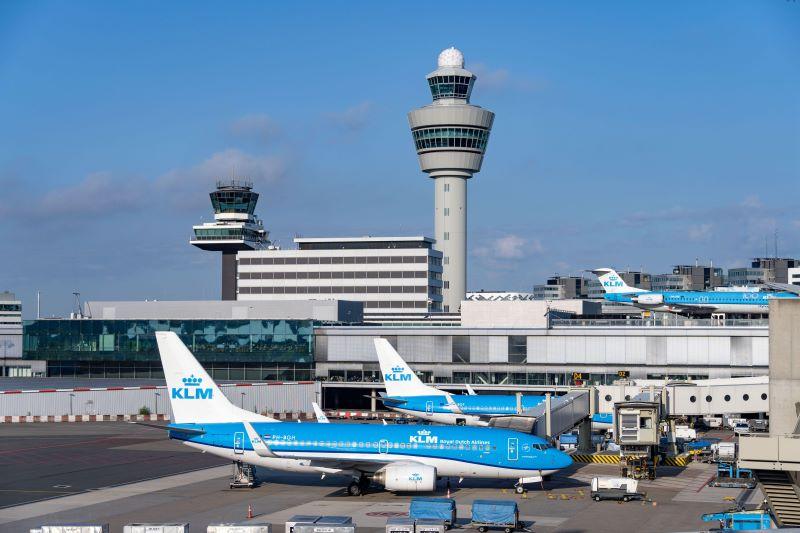KLM, IATA Plan Legal Action Against Dutch Government Over Schiphol Caps

IATA has mounted its own legal fight to block the Dutch government’s efforts to cap flights at Amsterdam Schiphol Airport for environmental reasons, arguing the decision contravenes EU and International laws.
The Netherlands is moving to reduce noise and carbon dioxide emissions generated by airlines using Schiphol and has unveiled what Schiphol Group characterizes as a “temporary scheme” of limiting the airport to 460,000 annual flight movements beginning with the 2023/24 winter season—below traffic levels of 496,000 annual movements already achieved in 2019 prior to the coronavirus pandemic.
Schiphol says it backs the government’s decision to impose a cap later in 2023 as “necessary,” but is urging authorities to consult airlines before establishing final, long-term rules for limiting flights at the airport.
The current cap at Schiphol is 500,000 aircraft movements per year. A further reduction to 440,000 annual flight movements in 2024 is being contemplated. KLM has previously said 440,000 annual movements would be 18.5 % below a potential 540,000 annual movements anticipated in the future and jeopardizes the airport’s status as a major global hub.
KLM, the Netherlands’ flag carrier, is lodging its own legal challenge to the Schiphol cap in Dutch courts.
“The KLM Group, Delta Air Lines, Corendon, easyJet and TUI are joining forces to take summary proceedings against the Dutch government in a bid to keep the Netherlands connected to the rest of the world via Schiphol Airport,” KLM said March 3. “The airlines are challenging the government’s unilateral decision to significantly cut flight movements at Schiphol, confident they can reduce noise levels and carbon dioxide emissions while maintaining a network of destinations for the millions of passengers and tonnes of cargo they carry annually to and from Schiphol.”
IATA is also mounting a legal challenge, concluding the cap “disregards the Chicago Convention.”
The organization contends EU law requires “consultation with affected parties” before such a cap could be put in place. KLM and IATA charge that the Dutch government did not consult with airlines operating at Schiphol. “No meaningful consultation was undertaken with industry,” IATA said. “Flight reductions are being imposed as a first resort, rather than as a last resort.”
IATA Director General Willie Walsh said the Dutch government refused to engage in meaningful consultations and made flight reductions the goal, rather than working with industry to meet noise and emissions reduction goals. “The dangerous precedent that this illegal approach creates left no choice but to challenge them in court,” Walsh said.
Schiphol Group says a reduction from 500,000 to 460,000 flights per year is a “necessary intermediate step.” In a document issued by Schiphol Group outlining its position, the airport operator says: “The restriction on growth in the volume of flight movements is not an end in itself for Schiphol. The proposed volume restriction is a painful intervention for the airlines, but acceptable for Schiphol ... The scheme is feasible and workable.”
KLM says it and the airlines backing its legal challenge “have already made multi-billion-euro investments to meet near- and long-term goals in line with their own decarbonization trajectories as well as government policies.” KLM adds the cap on flights violates “national, European and international legislation” and “is unnecessary, damaging and lacks proper substantiation, given the airline industry is already achieving significant results in relation to reducing carbon dioxide emissions and lowering noise levels.”
KLM says its legal challenge is in line with the position of the wider Air France-KLM Group. Its CEO Marjan Rintel says the Dutch flag carrier was “compelled to take legal action” to safeguard “our network that serves 170 destinations worldwide.”
Delta Air Lines notes it is fully backing SkyTeam partner KLM. “We strongly object to capacity reductions at Schiphol Airport and remain actively focused on investing in our fleet renewal and modernization program as the most effective way forward to mitigate noise and environmental concerns,” Delta EVP-External Affairs Peter Carter says.

